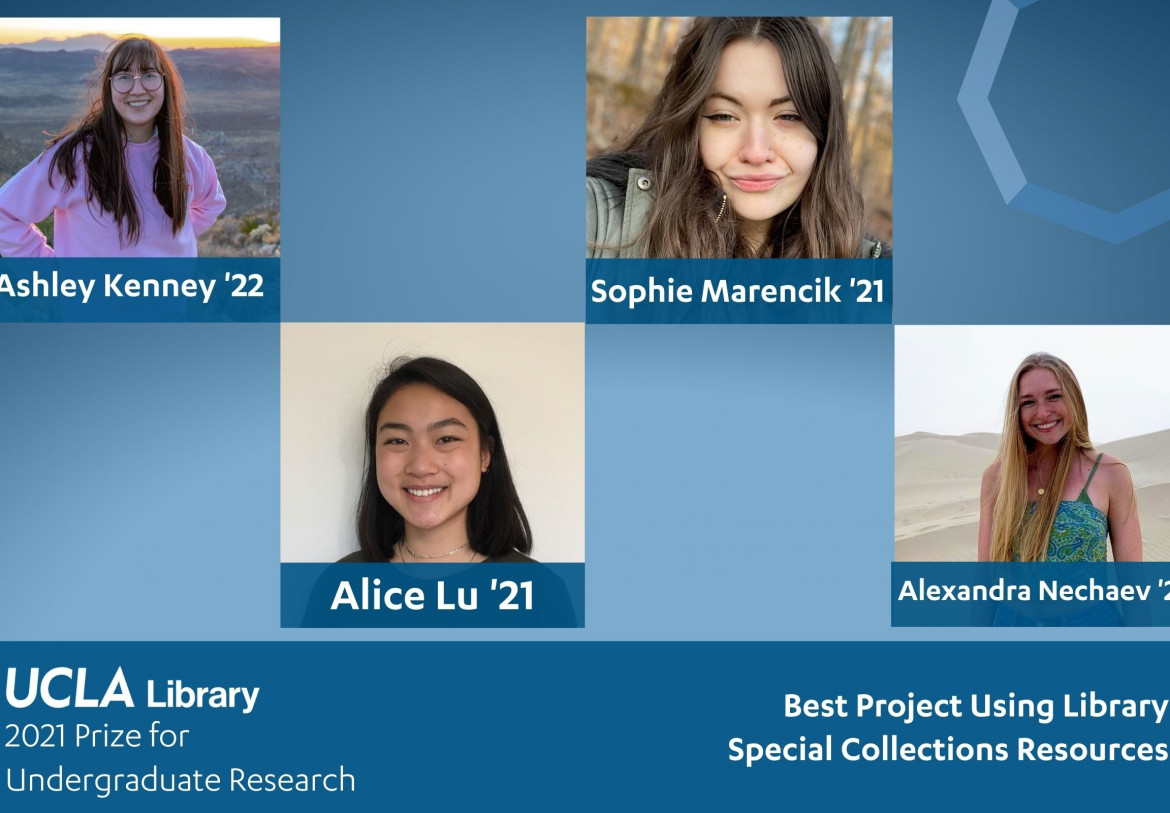Photo credit to UCLA Library
During a time of campus closure and remote learning, UCLA Library reimagined its services critical for students to carry out their research and academic coursework. Two students of ISG Faculty member, Bharat Venkat‘s “Red Hot LA” class, Alexandra Nechaev (’21) and Alice Lu (’21), shared their reflections on the invaluable support, ingenuity and dedication that UCLA librarians exhibited towards their stimulating research, “It’s Always Sunny in Central LA”.
In their research, Nechaev and Lu primarily relied on UCLA librarians Borovsky and Yao’s tutorials, databases, archives and tools found within the UCLA Library Special Collection, which played a critical role in the success of the project’s completion and honorable mention as the top project for its use of Library Special Collections.
“Zoe guided us through UCLA’s extensive databases and Special Collections archives, which were extremely helpful for our urban planning research and for accessing archival primary sources to better understand the parks we studied,” Nechaev recalled.
“From primary sources to demographic information, the resources we found were much more accessible to us than I could have imagined,” said the UCLA graduate, who is now doing a year of volunteer service before starting work on an M.D./Master of Public Health program.
Data sources from lists compiled by the Data Science Center “enabled us to see where parks were located within various Los Angeles neighborhoods in relation to the median household income, housing tenure and population density of the surrounding area,” explained Nechaev’s teammate Alice Lu ‘21 in a statement. The students also found quantitative data about the parks’ shape, size and features as well as the impact of heat on the area.
Venkat also shared his support and gratitude for the incredible efforts UCLA librarians contributed towards his students’ research success.
“In less capable hands, the sheer volume of data, and the range of data sources from which they drew would be overwhelming,” Venkat noted in his letter of recommendation to the prize selection committee. Instead, the students presented maps that allow the viewer “to superimpose layers that reveal critical insights about the intersection of thermal inequality, race, class and the built environment.”
Venkat also praised his campus colleagues. “The staff at the UCLA Library are brilliant educators as well as facilitators of student learning. I’m exceedingly ToTgrateful for their support, their flexibility and their immense creativity in finding work-arounds in difficult times.”
To read the full article, click here.



